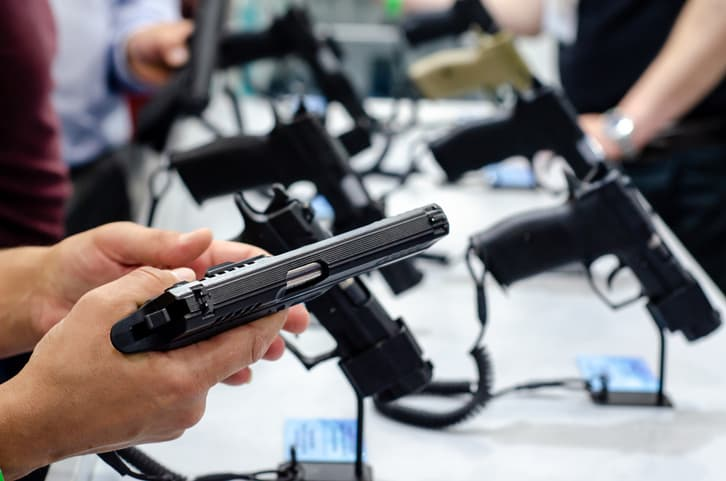Being charged with a crime in Taylor, Texas, can feel overwhelming, fast. Between the booking process at the Williamson County Jail, early court dates in Georgetown, and decisions about bail, defendants need a steady plan and experienced counsel. This guide explains what happens next, what actions protect a person’s rights, and how Taylor Criminal Defense lawyers approach bail, pre-trial motions, and courtroom strategy. It also clarifies how local courts treat misdemeanors versus felonies and the evidence-driven tactics that can change case outcomes. Firms like The Law Office of Ryan Deck regularly navigate these processes for Taylor-area defendants and their families.
First steps defendants should take when facing charges in Taylor
The hours after an arrest set the tone for the entire case. Smart, early decisions can preserve defenses and keep options open.
- Invoke the right to remain silent. Even brief conversations with officers or other inmates can be used later. A clear statement, “I’m invoking my right to remain silent and I want a lawyer”, should end questioning.
- Ask for counsel immediately. Taylor criminal defense attorneys can often step in before a first court appearance, communicate with the magistrate, and start working on release options.
- Avoid consenting to searches. Warrantless searches expand the state’s evidence. Politely decline consent unless an attorney advises otherwise.
- Note key details while fresh. Names of witnesses, camera locations (doorbells, nearby businesses), and timelines help the defense collect evidence before it disappears.
- Be mindful of social media and phone use. Posts, texts, and call logs are discoverable. Silence online is usually best.
- Plan for release. A trusted family member can gather funds, employment records, medical paperwork, or treatment documentation that may support a lower bond or personal recognizance release.
Taylor arrests generally lead to magistration in Williamson County, where a judge sets bail and issues conditions. That hearing can happen quickly, often within 24–48 hours, so having counsel ready matters. Early engagement also positions the defense to request preservation of body-worn camera footage, 911 audio, and surveillance video, which can be overwritten in days if no one acts. The earlier an attorney like those at The Law Office of Ryan Deck is looped in, the better the odds of controlling the first critical decisions.
Bail considerations and pre-trial motions under Texas law
Bail is meant to ensure appearance in court, not to punish. Under Texas Code of Criminal Procedure art. 17.15, judges consider factors such as the seriousness of the offense, a defendant’s ability to pay, ties to the community, prior history, and public safety. In practice around Taylor and greater Williamson County, counsel may pursue:
- Cash, surety, or personal recognizance (PR) bonds. Strong community ties, employment, school enrollment, health needs, or caretaking responsibilities can support PR or a reduced bond.
- Bond reductions. If initial bail is set too high, attorneys can file a motion to reduce bond, present evidence of stability, and propose reasonable conditions (no-contact orders, GPS, ignition interlock, treatment).
- Habeas relief on excessive bail. In rare cases, a writ can challenge unconstitutional bail.
Once a client is released, the next leverage point is pre-trial litigation. Effective Taylor criminal defense work uses the Texas Michael Morton Act (Code of Criminal Procedure art. 39.14) to compel full discovery, then pressures weak points:
- Motion to suppress unlawfully obtained evidence (vehicle stops, searches, statements without Miranda, or defective warrants).
- Motion to quash an information or indictment for legal defects.
- Motion in limine to keep prejudicial or unreliable material away from a jury.
- For felonies, strategic use of the grand jury stage, including submitting a defense packet or witness statements, can lead to no-bills or reduced charges before trial.
Timing matters. Discovery reviews should begin promptly, with requests to preserve video, download forensic data, and secure lab records. A defense team that litigates early, rather than waiting for a trial setting, often negotiates better results, from dismissals to favorable pleas or diversion where eligible.
Differences between misdemeanor and felony cases locally
Criminal cases in and around Taylor move through distinct courts with very different procedures and stakes.
- Class C misdemeanors (traffic and ordinance violations) are typically handled in Taylor Municipal Court or Justice of the Peace courts. Penalties are fines, not jail time, but convictions can still affect licenses and records.
- Class A and B misdemeanors (e.g., DWI, assault causing bodily injury, theft under certain thresholds) are prosecuted in Williamson County Courts at Law in Georgetown. Sentences can include jail (up to one year for Class A), probation, fines, and classes or treatment.
- Felonies (state jail through first degree) are prosecuted in Williamson County District Courts. Felonies require indictment by a grand jury, involve more complex discovery, and carry far heavier sentencing ranges, from 180 days in a state jail facility up to decades or life, depending on degree and enhancements.
Local practice also differs by office: the County Attorney generally handles misdemeanors: the District Attorney handles felonies. Deadlines and dockets can move quickly, especially on misdemeanor calendars. Felony cases often span months as labs test evidence, digital devices are analyzed, and the grand jury process runs its course.
For both levels, collateral consequences loom large: immigration status, professional licenses, firearm rights, and eligibility for sealing or expunction later. A tailored strategy in Taylor criminal defense considers not only the immediate case, but also how the resolution impacts life beyond the courthouse.
Courtroom representation and defense attorney strategies
When a case reaches court, preparation and presence matter. Judges in Williamson County expect punctuality, compliance with bond conditions, and clear communication. Skilled defense counsel manages all three while advancing the defense theory.
Core strategies include:
- Plea posture built on evidence, not assumptions. Defense attorneys who have already challenged the stop, search, or identification, and identified chain-of-custody gaps, negotiate from strength.
- Mitigation packets. Personal history, employment records, treatment enrollment, military service, and letters of support can humanize a client and shift outcomes at plea or sentencing.
- Targeted hearings. Suppression hearings, Daubert/Kelly challenges to forensic reliability, and motions in limine narrow the state’s case before a jury hears a word.
- Jury selection (voir dire). In a trial, counsel probes jurors’ views on police credibility, scientific evidence (like breath/blood testing), self-defense, and burden of proof to seat a fair panel.
- Strategic witness use. Cross-examining officers on report discrepancies or body-cam inconsistencies often provides the reasonable doubt jurors need.
Inside the courtroom, calm advocacy can be as important as legal arguments. Defense teams remind clients to follow dress guidelines, speak only through counsel, and stay off social media. They also track every setting, announcement, pre-trial conferences, and trial calls, so no deadline is missed. Firms such as The Law Office of Ryan Deck pair litigation with practical guidance that keeps clients compliant and credible in the judge’s eyes.





